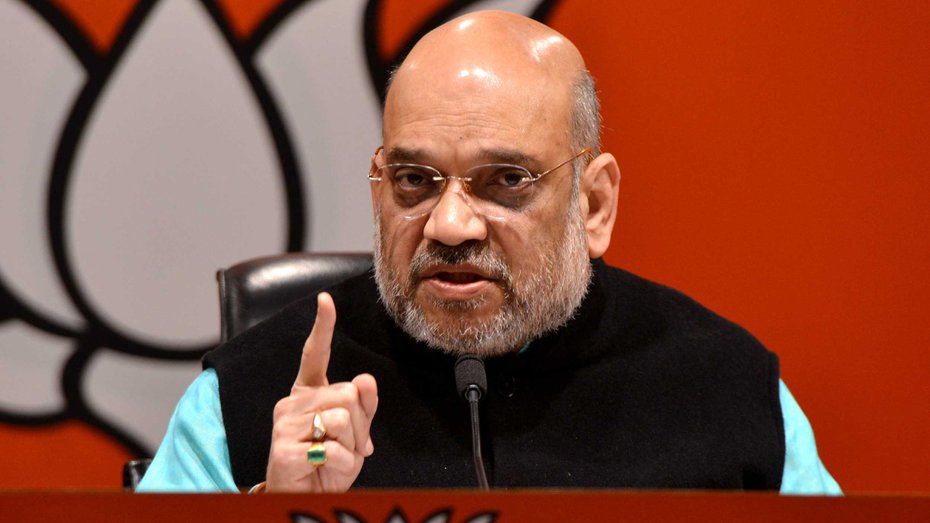Amit Shah’s zeal towards the Kashmir issue was seen in his thunderous speech in the Lok Sabha on Friday. During the debate of the J&K reservation (amendment) Bill, a definitive glimpse of Amit Shah’s Kashmir policy was seen. He covered the aspects of Article 370, the center’s stand on separatists and how history has shaped the current scenario.
While talking about how the Kashmiri people have suffered since the past many decades, and have borne the maximum brunt of the unrest, Amit Shah introduced the legislation which is aimed at providing reservation in educational institutions and government jobs to those living within 10 km of the international border (IB) along the Line of Control (LoC). “It won’t hurt us to give them extra out of our pockets,” said Amit Shah.
Talking about the Congress, Amit Shah stated how essentially the seeds of distrust had been planted by the grand old party between Kashmir and the rest of the country. He alleged that former Congress Prime Minister, Jawaharlal Nehru decisions’ was behind India losing one-third of its territory to Pakistan.
Taking jibe at the Congress, the Home Minister questioned Congress’ soft stance towards the separatists. He demanded that why the Jammu and Kashmir Liberation Front (JKLF) had to be banned by the current government as late as in 2019 when its separatist deeds were known since decades before. He also questioned why the Jamaat-e-Islami was not banned by previous governments. Modi government has kept a strong stance and followed a muscular power policy against the separatist groups, which has resulted in the Hurriyat suggesting tripartite talks between the India, Pakistan and Kashmir; something which the Congress could never achieve. Their political apathy towards the situation in Kashmir has kept the state bleeding. Amit Shah claimed that the government would come down hard on the “Tukde Tukde gang”.
Amit Shah also spoke about the concepts of Insaniyat, Jamhuriyat and Kashmiriyat in the parliament.
Insaniyat was providing toilets to women, providing security to people, building homes for the poor and instilling a fear of the law among those who were tried to create an atmosphere of fear. This has been taken care by the current government.
Jamhuriyat is creating a democratic atmosphere in the state. Amit Shah alleged that the state elections in 1957, 1962 and 1967 were fraudulently held in Jammu and Kashmir with the Congress government ensuring that a large number of candidates were declared winner unopposed. He said, “All these elections were mockery of democracy. This was the beginning of distrust among the people of Kashmir.”
On the other hand, the BJP government successfully conducted Free and fair elections for 40,000 panchayats, which gave the opportunity to common people to come and take up leadership positions in their area.
Amit Shah further continued by stating that Kashmiriyat is about being part of the country, and not spilling blood of the citizens. It is definitely not about driving away Sufism and Kashmiri Pandits. The word has been used wrongfully by the separatists to peddle anti-nationalistic agenda, whereas in reality, Kashmiriyat is all about inclusion. “Those who want to separate J&K from India must have fear in their minds and hearts. We are not against common people of J&K. We will protect the Kashmiri culture,” Shah added.
Amit Shah also stressed on the developmental projects in the state. He listed how processes had been initiated for job creation for the youth. He also outlined the strong measures the Centre was taking against terrorism in the state.
With the Lok Sabha speech, Amit Shah has shown the muscular policy the new Home Minister will have for the Kashmir issue. He claimed that how earlier, people who made statements against the government were given security. But, all that has changed now. The current government has a zero-tolerance policy towards separatists and terrorism. The need for including the Kashmiri people and their culture into the Indian fold by initiating development was the aim of the government.
